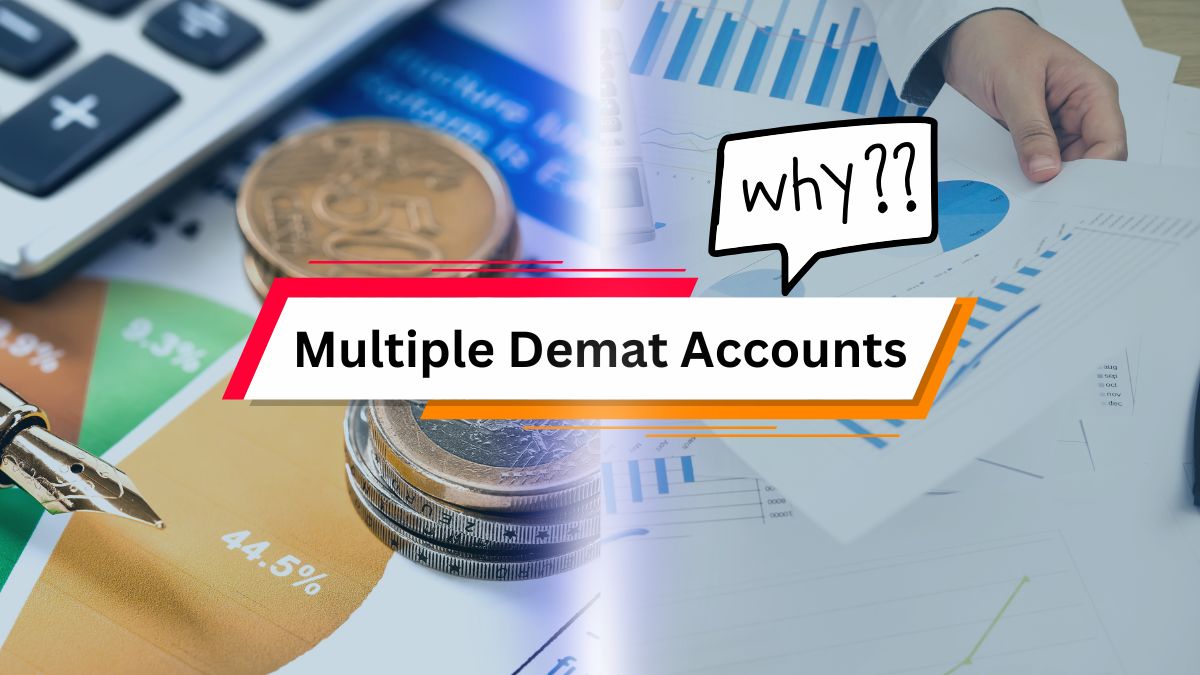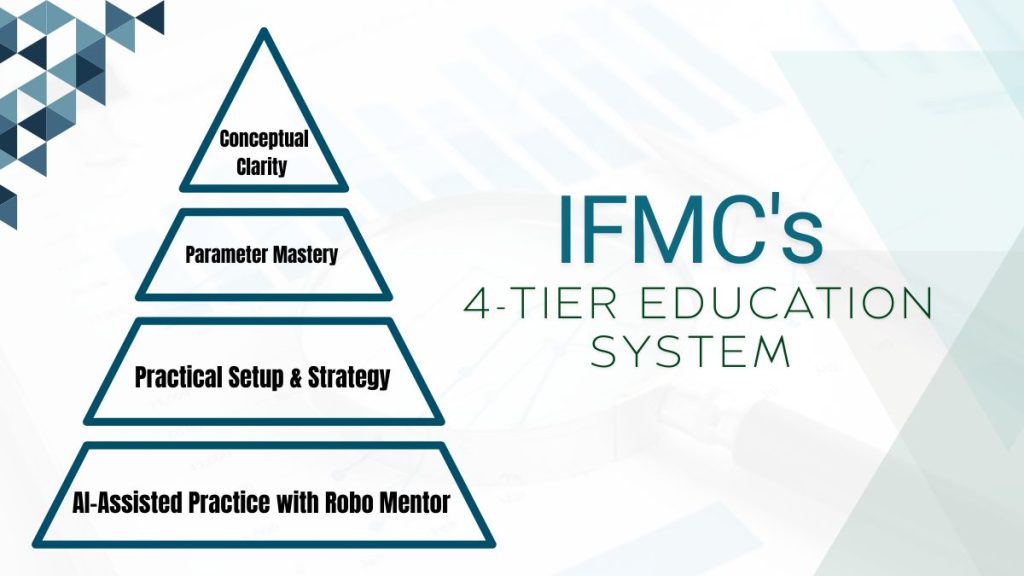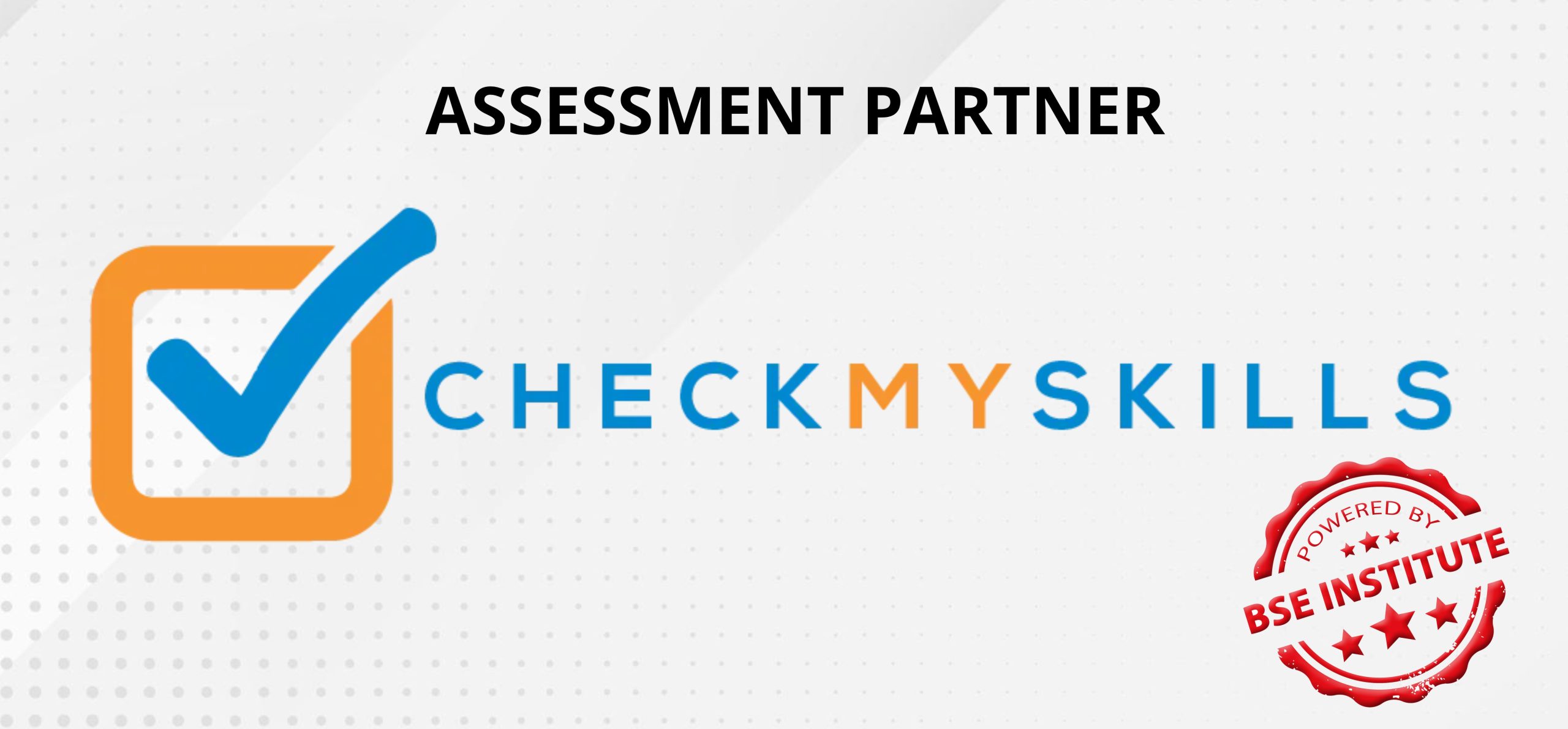In the fast paced world of investing, having a Demat account is a must for anyone who wants to buy or sell shares in the market. A Demat account or dematerialized account holds your shares, bonds and other financial instruments in electronic form, eliminating the need for physical share certificates. This has made investing more efficient and safer for investors.
While a single Demat account is enough for most retail investors, some choose to open multiple Demat accounts. But why would anyone need more than one? In this post we will see the benefits of having multiple Demat accounts, how they can help different types of investors and things to consider before opening them.
What is a Demat Account?
A Demat account, short for Dematerialized account, is a digital platform where you can hold and manage your investments in electronic form. Instead of dealing with physical share certificates which were common before the digital era, a Demat account electronically stores various financial securities such as:
- Shares
- Bonds
- Mutual fund units
- Government securities
- Exchange-Traded Funds (ETFs)
- Debentures
- Other financial instruments
Just like a bank account holds your money, a Demat account holds your securities. When you buy or sell shares or other financial instruments, they are credited to or debited from your Demat account. It simplifies the process of tracking, trading and managing your investments, eliminating the need for paper based certificates which were prone to risks like loss, damage or theft.
Key Features and Benefits of a Demat Account
Here is a more detailed look at how a Demat account works and the benefits it offers:
1. No Physical Certificates

Before Demat accounts were introduced, investors had to deal with physical certificates for their shares which were cumbersome to manage and easy to lose. These certificates also had the risk of forgery or theft. By holding securities in electronic form in a Demat account, you eliminate all these risks, making it a safer and more convenient way to manage your investments.
2. Smooth Transactions

When you buy or sell shares, the settlement of trades happens quickly and efficiently through your Demat account. Gone are the days of waiting for weeks to get your share certificates after a transaction. Now your purchases are credited to your Demat account and your sales are debited almost instantly, ensuring quick settlements—generally within two working days (T+2 settlement cycle).
3. Easy Portfolio Management
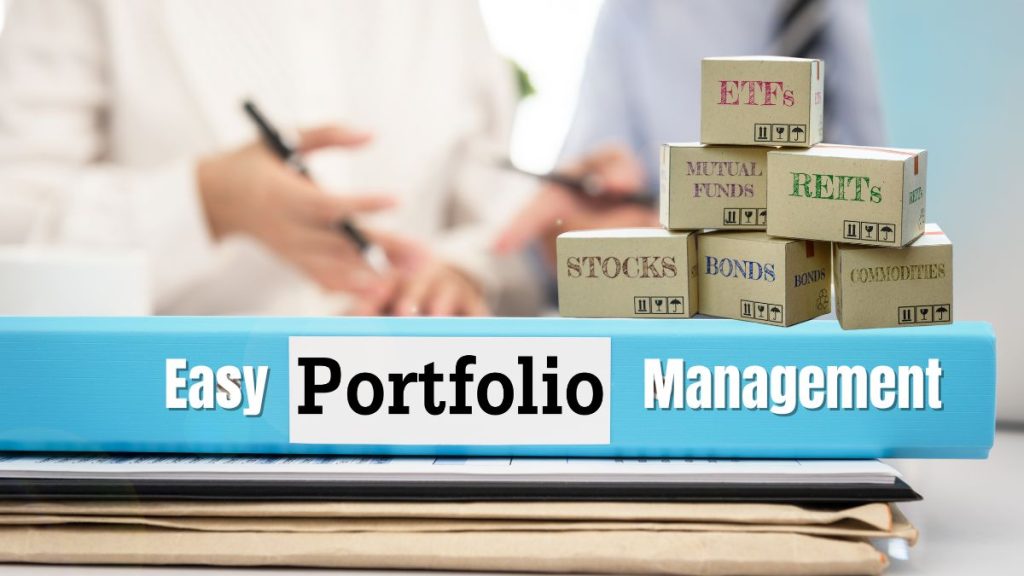
A Demat account gives you a consolidated view of all your investments in one place. Whether you hold shares, bonds or mutual funds, you can see all of them in your account, helping you to manage your portfolio better. Most Demat accounts come with user friendly interfaces and online access, so you can check your holdings, transaction history and performance of individual assets.
4. Simplification of Corporate Benefits

When companies declare dividends, bonus shares or rights issues, they are credited to your Demat account, making it easier to receive and manage these benefits. With physical shares, investors used to face delays or even miss out on these corporate actions, but Demat accounts simplify the process, ensuring timely credit of these benefits.
5. Lower Transaction Costs

In the physical certificate era, investors had to pay for various services like stamp duty, courier charges and handling costs. With Demat accounts, these costs have been reduced significantly. While there are brokerage charges and annual maintenance charges (AMC) for Demat accounts, the overall transaction costs are still lower compared to physical shares.
6. Paperless Trading

One of the biggest advantages of having a Demat account is the shift to a completely paperless trading experience. It eliminates the hassle of handling, storing and transferring physical share certificates. This improves convenience and reduces paperwork errors.
7. Security and Fraud Prevention

The electronic format of a Demat account is more secure than physical certificates which were prone to theft, loss, damage or fraudulent duplication. With a Demat account, the ownership of shares is recorded in the system and the chances of fraud are greatly reduced, so you can sleep peacefully.
8. Nomination Facility

Most Demat accounts offer nomination facility, where you can nominate a person to inherit the securities in your account in case of an unfortunate event. This simplifies the transfer of assets to your loved ones, reducing the complexity of physical certificates.
9. Multiple Assets in One Account
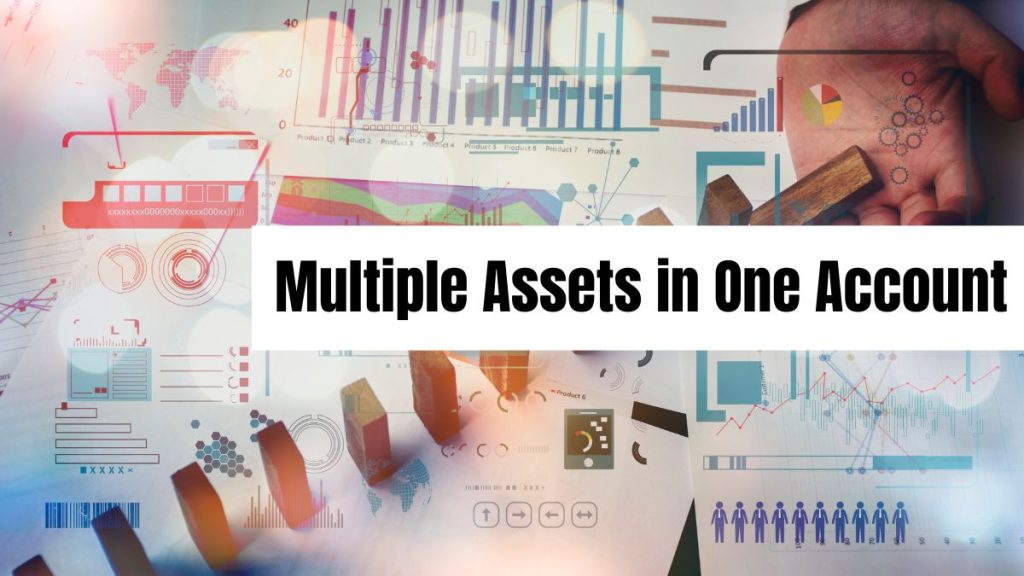
A Demat account doesn’t just hold shares. It can also hold bonds, ETFs and mutual fund units. This flexibility makes it a one stop solution for managing multiple types of securities, diversification and simplifying your life.
10. Loan Against Securities

Banks and financial institutions allow you to use the securities in your Demat account as collateral for loans. So you can use your holdings to get loans without selling your investments.
How Does a Demat Account Work?
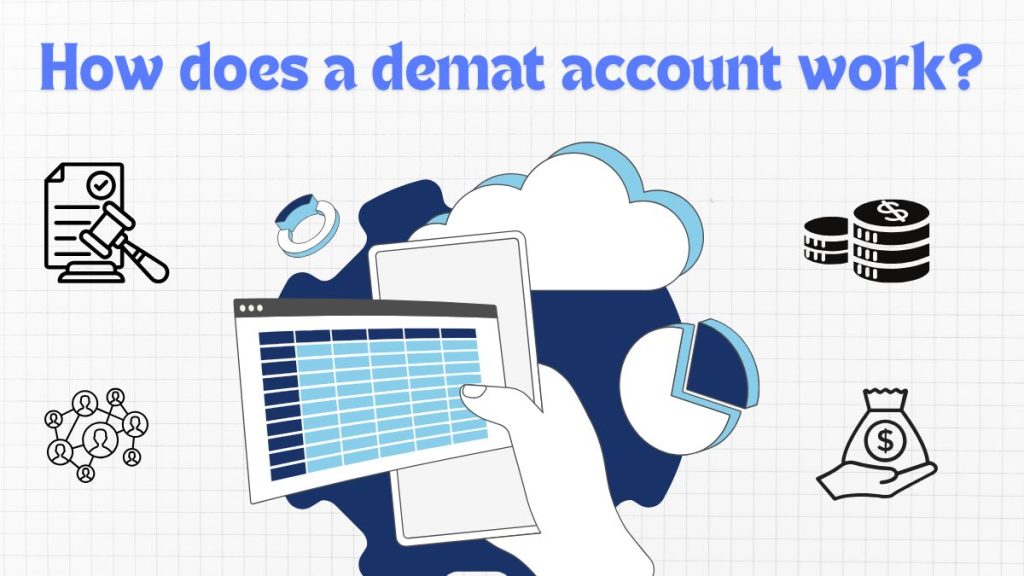
Let’s see how a Demat account works:
- Opening the Account: To open a Demat account, you need to approach a Depository Participant (DP), who could be a bank, broker or other financial institution, who acts as an intermediary between you and the stock exchanges.
- Depository: The depository holds your securities in digital form. In India, there are two main depositories: NSDL (National Securities Depository Limited) and CDSL (Central Depository Services Limited). Your DP works with one of these depositories to hold and manage your securities.
- Transaction Process: When you buy shares, your broker facilitates the trade through the stock exchange. After the trade is settled, the shares are credited to your Demat account. When you sell shares, they are debited from your Demat account. All this is done electronically.
- Holding Statements: Your Demat account provides a holding statement that shows all the securities you hold along with their quantities. This statement is updated automatically as you buy or sell.
How to Open

- Choose a DP: Select a broker, bank or financial institution that offers Demat account. Compare the brokerage, annual maintenance charges and customer service before you decide.
- KYC: You need to complete the Know Your Customer (KYC) process. This involves submitting identification and address proof documents along with PAN card.
- Application Form: Fill the Demat account opening form provided by the DP along with your KYC documents.
- IPV: Some DPs may require in-person verification (IPV) where you need to visit their office or complete an online video verification.
- Agreement: You need to sign an agreement which outlines the terms and conditions of the Demat account.
- Account Activation: Once the verification process is completed and documents are approved, your Demat account will be activated and you will get the account number or Demat ID.
Why Multiple Demat Accounts
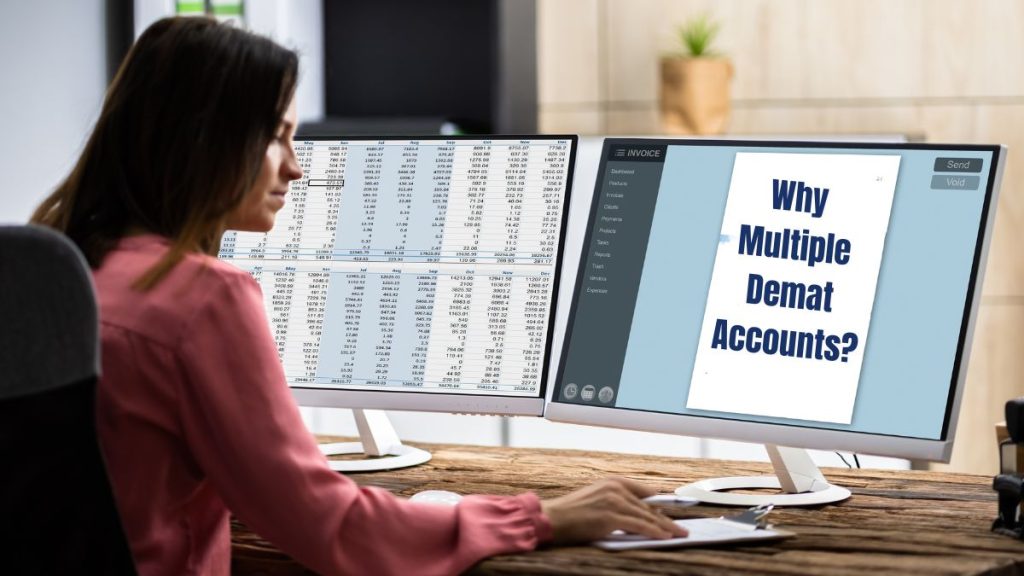
While most retail investors are happy with a single Demat account, experienced traders or investors with diverse portfolio may find having multiple Demat accounts useful. Here’s how multiple Demat accounts can be useful for better investment and financial planning:
1. Segregation of Investments for Better Management
One of the biggest advantage of having more than one Demat account is to segregate different types of investments. Investors have different financial goals and investment strategies and keeping them separate helps in better control and management.
- Long Term vs Short Term Investments: You may want to keep long term investments like blue chip stocks or mutual funds in one Demat account and short term trades like intraday or swing trading in another. This way you can track the performance of each investment based on its objective.
- Different Investments: For investors dealing in multiple asset classes like equities, bonds and commodities, separate Demat accounts for each type of investment can simplify the management and avoid mixing of strategies.
2. Different Platforms for Different Needs
Multiple Demat accounts allow you to use different brokerage platforms based on their strengths. Different brokers are good in different areas and you can optimize your trading by using multiple accounts.
- Intraday Trading vs Long Term Holding: Some brokers offer advanced tools and fast execution for intraday trading while others offer lower fees and better services for long term investments. Multiple accounts let you use each broker’s platform for its best use case.
- Specialized Brokerage Services: If you trade in niche markets like international equities or IPOs you can use brokers who are specialized in those areas without being limited to a single brokerage service.
3. Risk Management and Diversification
Risk management is an essential part of successful investing. Multiple Demat accounts can help in reducing certain risks associated with trading.
- Backup in case of Broker Related Issues: If your primary broker faces technical issues like system downtime or trading platform glitches, having a secondary Demat account ensures you don’t miss out on trading opportunities.
- Protection from Market Volatility: Multiple accounts allow you to hedge your positions and diversify across different markets or asset classes more effectively during market volatility.
- Safeguard from System Failures: In case of system failures or cyber attacks, having multiple Demat accounts ensures you can manage your portfolio or trade without any interruptions.
4. More IPO Allotments
For investors looking to invest in IPOs, multiple Demat accounts can get you more allotments.
- Multiple Applications: The IPO allotment process is based on lottery system. By applying through different accounts you increase your chances of getting shares. Many investors open Demat accounts for family members and apply for the same IPO from each account, increasing the chances of allotment.
5. Tax Benefits and Easier Record Keeping
Tax management becomes complicated when you have multiple types of investments. Multiple Demat accounts offer tax benefits by simplifying the record keeping and making it easier to track capital gains.
- Long Term and Short Term Holdings: Short term and long term capital gains are taxed differently. By using different Demat accounts to hold each type of investment you can track and calculate your capital gains without any confusion.
- Capital Gains Management: Separating your holdings into different accounts prevents accidental selling of long term investments when you want to do short term trades. This can be crucial while calculating tax liabilities.
6. Better Brokerage Rates
Brokerage fees differ between brokers and can have a big impact on your overall returns. By having multiple Demat accounts you can optimize for cost.
- Fees for Different Trades: Some brokers offer lower fees for intraday or high frequency trading while others have better fee structure for long term holdings. Using separate accounts lets you minimize costs and make the most of broker specific benefits.
- Take advantage of Seasonal Offers: Brokers roll out promotional offers or discounts on brokerage fees. Having accounts with multiple brokers lets you enjoy those offers without having to transfer your entire portfolio.
Before Opening Multiple Demat Accounts
1. Annual Maintenance Charges (AMC)

Each Demat account has its own AMC, which varies from broker to broker. Having multiple accounts means multiple AMCs, so weigh the benefits of having separate accounts against these costs.
- Compare AMC Fees: Different brokers charge different AMCs, so compare before opening multiple accounts to avoid unnecessary expenses.
- Optimize Costs: Some brokers have zero AMC accounts or discounted rates for certain clients. Check for these to save costs.
2. Multiple Accounts Complexity
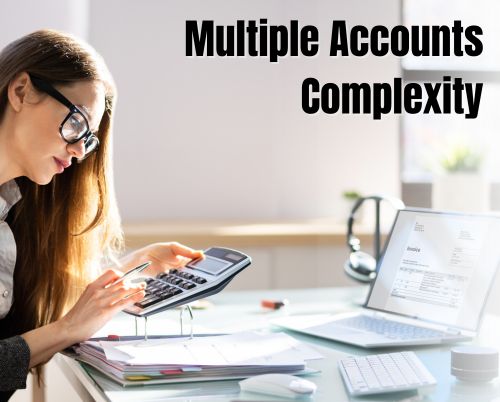
Having multiple Demat accounts gives you flexibility but adds to your portfolio management complexity. You’ll have to track investments across different platforms, monitor brokerage fees and not miss out on important trades.
- Use Portfolio Management Tools: Use portfolio management software or apps to track all your Demat accounts in one place. This will help you avoid mistakes and simplify your overall investment management.
3. Regulatory Compliance
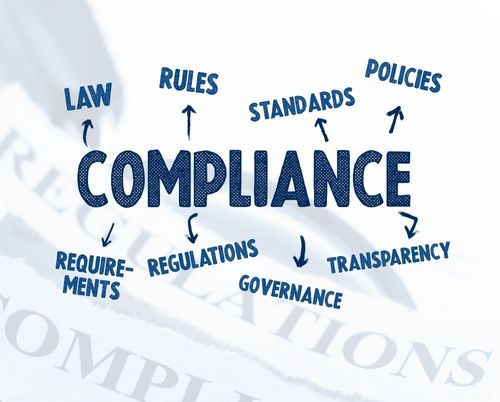
When opening multiple Demat accounts, ensure you follow all the regulations.
Regulatory compliance is critical when managing multiple Demat accounts. SEBI and depository participants (DPs) have clear rules for these accounts. Make sure you comply with the following:
- KYC Requirements: Each Demat account requires Know Your Customer (KYC) documentation. Ensure you provide accurate and updated details to avoid any issues.
- Account Usage: Ensure all accounts are active or maintained as per the terms agreed with your broker. Some brokers charge for dormant accounts.
- Tax Reporting: You need to report income from all Demat accounts accurately while filing taxes. Not reporting income from one account can lead to penalties or scrutiny.
Conclusion: Is Multiple Demat Accounts Worth It?
Opening multiple Demat accounts can be a good strategy for some investors depending on their trading habits, risk management, portfolio management and other needs. Whether you are a long term investor, short term trader or someone who wants better control over taxes, there are benefits of having separate accounts.
But do consider the added complexity and costs. Managing multiple accounts requires more attention to detail and can lead to additional fees which may not be worth it for some investors. So decide to open multiple accounts based on your trading style, investment goals and your ability to manage them.
In short, multiple Demat accounts are good for:
- Segregating investments based on strategies (long term vs short term)
- Using multiple brokers for their strengths
- Increasing IPO allotment chances
- Simplifying tax management
- Diversifying and managing risks
If you like flexibility, strategic advantages and an organized portfolio, multiple Demat accounts may be worth it. But if you prefer simplicity and low maintenance, one Demat account should be enough. Always weigh the pros and cons before you decide what’s best for you.
Multiple Demat Accounts FAQs
No, SEBI allows individuals to open multiple Demat accounts as long as they are with different Depository Participants (DPs). But having more than one account with the same DP is not allowed.
Yes, you can transfer shares between your Demat accounts through off-market transfer. But some charges may apply depending on the broker.
Yes, every new Demat account will require you to do KYC with the broker.
You will have to report income from all your Demat accounts while filing taxes. Having separate accounts for long term and short term investments can simplify your tax filing.
Yes, since each account has its own AMC and brokerage fees,
you will pay more. Just calculate these costs before you decide if multiple
accounts are for you.




